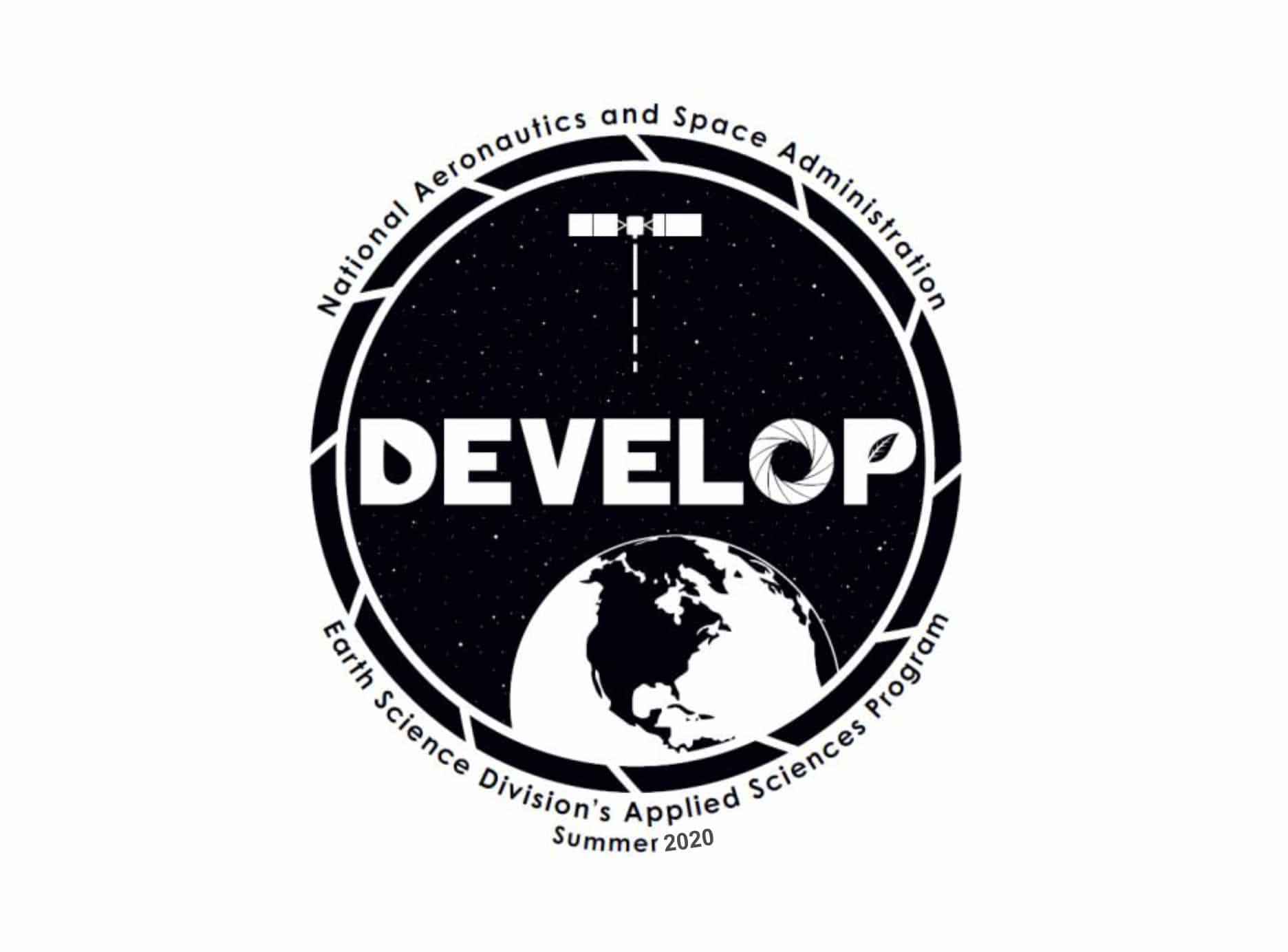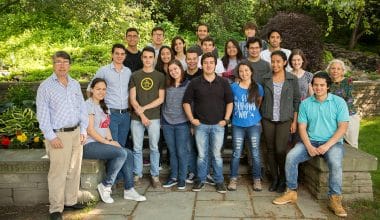Japan’s government in conjunction with the MEXT (Ministry of Education, Culture, Sports, Science, and Technology) is delighted to offer scholarships to international students who wish to study at Japanese universities as research students under the Japanese Government (MEXT) Scholarship Program for 2024 as stipulated below.
Its aim is to foster human resources who will become bridges of friendship between the scholarship recipient’s country and Japan through study in Japan and who will contribute to the development of both countries and the wider world.
Table of contents
About The Sponsor
The Ministry of Education, Culture, Sports, Science, and Technology, also known as MEXT, Monka-shō, and formerly the Ministry of Education, Science, and Culture, is one of the ministries of the Japanese government.
MEXT is led by the Minister of Education, Culture, Sports, Science, and Technology, who is a member of the Cabinet and is chosen by the Prime Minister, typically from the members of the Diet.
Why the Japanese Government (MEXT) Scholarship Program?
MEXT is one of three ministries that run the JET Programme. It also offers the Monbukagakusho Scholarship, also known as the MEXT or Monbu-shō scholarship.
Types of Japanese Government (MEXT) Scholarship Program
There are six types of Japanese government-sponsored scholarships available under the Japanese Government MEXT Scholarship program. Those for
- research students,
- teacher training students,
- undergraduate university students,
- Japanese studies students,
- college of technology students,
- special training students.
Japanese Government (MEXT) Scholarship Program can be recruited in three(3) different ways.
Those wishing to apply for a scholarship should meet one of the criteria listed below:
- Recommended by a Japanese embassy or consulate-general (Embassy Recommendation).
- Recommended by the Japanese university which will accept you (University Recommendation).
- Selected by the Japanese university in which you are currently enrolled if you are a privately-financed student already studying in Japan (Domestic Selection).
READ ALSO: Fully Funded International Scholarships 2024-2024 (SHARE)
Embassy Recommendation
In this type of scholarship, scholarship recipients are recruited and initially screened by a Japanese embassy (or consulate general, depending on the country).
Also, the application process differs according to the country in which the Japanese embassy is located, please inquire at the Japanese embassy or consulate general in your country for details.
Research student, Undergraduate student, College of Technology student, and Special training college student
Recruitment for those arriving in Japan next April is made between April and May. The initial screening (documentary examination, written test, and interview) is made at the embassy between June and July.
The embassy then recommends the selected candidates to the Japanese Ministry of Education, Culture, Sports, Science, and Technology (MEXT) through the Ministry of Foreign Affairs by late August.
Teacher Training And Japanese Studies student
Recruitment for those arriving in Japan next October is made between December of the previous year and the following February. Screening is conducted between Mid-February and March. Selected candidates are recommended to the Japanese Ministry of Education, Culture, Sports, Science, and Technology (MEXT) through the Ministry of Foreign Affairs by the beginning of April.
Past exam questions of these courses have not been disclosed. Please refer to the Japanese and English examination questions in the Past Examination Questions.
READ ALSO: David Oyedepo Foundation Scholarships for African Students
University Recommendation
(1) Research students and Japanese studies students who will be studying in Japan as exchange students based on inter-university student exchange agreements can be screened through the national, public or private Japanese university involved as a candidate for a Japanese Government Scholarship. The university directly recommends the selected candidates to the Japanese Ministry of Education, Culture, Sports, Science, and Technology (MEXT).
(2) Research students recommended by a university for study in Japan as government-sponsored scholarship recipients basically arrive in Japan in October.
Japanese studies students basically arrive in Japan in October according to the university program. Universities recommend candidates to the Ministry of Education, Culture, Sports, Science, and Technology (MEXT) by mid-April.
Domestic Selection
(1) Privately financed, full-time postgraduate foreign students, prospective postgraduate students, and full-time, prospective fourth-year undergraduate university students (prospective sixth-year students in the case of medical schools, etc.) are granted domestic selection scholarships that begin in April. Recruitment is conducted through national, public, and private universities with the exception of junior colleges.
(2) Universities carefully screen academically and individually excellent students and recommend them by mid-December as government-sponsored scholarship candidates to the Ministry of Education, Culture, Sports, Science, and Technology (MEXT).
Fields of Study
Fields of study must be subjects which applicants will be able to study and research at Japanese universities.
Host Nationality
The Scholarship is to be taken in Japan. Read also if you wish to study outside your home country Simple and Detailed Answers about Applying and Winning a Scholarship.
Eligible Nationality
The scholarship is open to all Nationalities. If you are an international student and you wish to study in the UK, this is for your Complete Guide to Getting A UK Tier 4 Student Visa For International Students.
Scholarship Benefits
Successful applicants receive scholarship benefits in the form of stipends, travel costs, and school fees.
Stipend
Scholarship recipients will be provided with a monthly stipend of 146,000 JPY (Research Student). This stipend is subject to change as specified by the regulations of the MEXT Scholarship program. The monthly stipend will not be paid to those who take a leave of absence or is long absent from Tokyo Tech.
Please note that the scholarship will be canceled in the following cases, and the recipient may be ordered to return stipend payments already received:
- The recipient is determined to have made a false statement on his/her application;
- The recipient violates any article of his/her pledge to the Minister of Education, Culture, Sports, Science, and Technology;
- If, the recipient violates Japan’s laws and regulations and is sentenced to imprisonment of more than one year;
- The recipient is subjected to disciplinary action taken by Tokyo Tech, such as expulsion or removal from the register;
- It has been determined that it will be impossible for the recipient to complete the training course within the standard time period because of poor academic grades or suspension from Tokyo Tech;
- The recipient’s status of residence in Japan has changed to one other than College Student as defined in the Appended Table I-4 of the Immigration Act;
- The recipient has received a scholarship from another institution (excluding those specified for research expenditures);
- Also, the recipient proceeds to a more advanced level of education without receiving approval for an extension of the period of the scholarship; or
- The recipient withdraws from Tokyo Tech or transfers to another university.
2. Travel Costs
(1) Transportation to Japan
According to his/her itinerary and route as designated by MEXT, recipients will be provided with an economy class air ticket from the international airport closest to their place of residence to Narita or Haneda International Airport. The ticket will be issued only for a route departing from the airport indicated in the application.
Expenses such as inland transportation from the recipient’s place of residence to the nearest international airport, airport tax, airport usage charges, special taxes on overseas travel and travel expenses within Japan will NOT be covered. (In principle, the place of residence of the recipient shall be the address stated in the application form.) Air travel from a country other than that of the recipient’s country of citizenship will not be covered by the scholarship.
Air tickets will not be covered if the recipient chooses to travel to Japan before or after the period designated by MEXT.
(2) Transportation from Japan
An economy class air ticket for a flight from Narita or Haneda International Airport to the international airport closest to the recipient’s place of residence in his/her country of citizenship will be provided upon separate application as long as the recipient returns to his/her country during the final month in which he/she receives the scholarship.
Note: (1) Insurance premiums for travel to/from Japan shall be borne by the recipient. The airport the recipient departs from or returns to must be an airport of the country of his/her citizenship.
(2) In some cases, the return air ticket may be provided by Tokyo Tech.
School Fees
Fees for matriculation, tuition, and entrance examinations will be waived by Tokyo Tech.
Who Is Eligible For MEXT Scholarship Program?
1. Eligibility is limited to applicants who are not residing in Japan and who will be able to arrive in Japan prior to the enrollment period as a graduate-level student.
In addition, applicants must have demonstrated excellent academic achievement with a grade point average of 2.30 (out of 3.00) or above in the last two academic years and meet certain criteria.
Finally, each applicant must have obtained either
- An official recommendation from a university with which Tokyo Tech has a formal agreement
- An official recommendation from the president or representative(e.g. director or dean) of a university with which Tokyo Tech has established bilateral activities.
2. Nationality
Applicants must have the nationality of a country that has diplomatic relations with Japan. Applicants with Japanese nationality are not eligible unless they are dual nationals of Japan and another country and reside outside of Japan at the time of application. Dual national applicants selected for the scholarship will be required to renounce their Japanese nationality by the date of their arrival in Japan.
3. Age
In principle, applicants must have been born on or after April 2, 1983.
4. Academic Background
Applicants must have graduated from a Japanese university or have academic ability equal or superior to that of a Japanese university graduate. The applicant will be deemed to have academic ability equal or superior to that of a Japanese university graduate if he/she:
- has completed or will complete a 16-year school curriculum in a foreign country; or
- (is or will be aged 22 or older and has taken an individual entrance qualification examination and has been judged by Tokyo Tech as being equal or superior in academic ability to a Japanese university graduate.
Note: Eligible applicants include those who otherwise satisfy or will satisfy qualification requirements for admission to a Japanese graduate school.
5. Major Field of Study
Each applicant should apply for the field of study he/she studied at the previous university or a related field. Each applicant must identify a field in which he/she can receive education and perform research at Tokyo Tech.
6. Japanese Proficiency
For research in fields which require the Japanese language (e.g. Japanese history, linguistics), applicants must have the ability to conduct research in Japanese.
7. Health
Applicants must be physically and mentally able to pursue studies at Tokyo Tech.
8. Arrival in Japan
Applicants must be able to leave for and arrive in Japan within two weeks of the date set by the Tokyo Institute of Technology for the beginning of the third quarter in September 2019.
9. Visa Requirement
Applicants must acquire College Student (ryugaku) visas before entering Japan. They then enter Japan with the College Student (ryugaku) residence status. Please also note that those who change their visa status to one other than College Student after arrival in Japan will lose their qualification to be Japanese Government Scholarship recipients from the date their visa status changes.
10. Community engagement
Applicants should be willing to participate in community events held in Japan to promote mutual understanding.
After returning to their home country, scholarship recipients shall maintain close contact with Tokyo Tech, cooperate with the conducting of post-return survey questionnaires, participate in events conducted by local Japanese diplomatic missions, and endeavor to improve relations between their home country and Japan.
11. Other
Applicants who meet any or all of the following conditions are not eligible, and if identified after the start of the scholarship period, they will be required to withdraw from the scholarship.
- Those who are military personnel or military civilian employees at the time of their arrival in Japan;
- Those who cannot arrive in Japan during the period designated by MEXT or Tokyo Tech;
- Also, those who previously received a Japanese government scholarship and who, for more than three years between the conclusion of the previous scholarship period and the selection for this scholarship, have not conducted education or research. This condition does not apply to the past recipients of Japanese studies scholarships, Japan-Korea Joint Government Scholarship Program For The Students In Science And Engineering Departments and the Young Leaders Program;
- Those who concurrently apply for a MEXT Scholarship through a different program, such as the MEXT Scholarship through Embassy Recommendation, etc.;
- Those who are currently enrolled at a Japanese university with College Student (ryugaku) residence status; those enrolled, or scheduled to be enrolled, at a Japanese university as a privately-financed international student during the period between the filing of the scholarship application in the home country and the start of the provision of the scholarship. This condition does not apply to current self-financed international students at Japanese universities who will complete their courses of study and return to their countries before the start of the scholarship period;
- In addition, those who are currently receiving or plan to receive Japanese or other government-funded or private scholarships;
- Those who are expected to graduate at the time of application and cannot satisfy the qualifications and the conditions related to the academic background by the deadline given;
- Those who are holders of dual nationality at the time of application and cannot verify that they will renounce Japanese nationality by the time of their arrival in Japan;
- Furthermore, those who wish, from the time of application, to conduct fieldwork or participate in an internship outside of Japan, since this scholarship program is intended for overseas students who wish to enroll in a Japanese university and do graduate research in Japan; and
- Those who have already obtained a doctoral degree and do not plan to enter a degree program after participating in the Research Student Program.
Japenese MEXT Scholarship Application
Interested applicants should visit
Research Student:
https://www.studyinjapan.go.jp/en/smap_stopj-applications_research.html
Undergraduate Student:
https://www.studyinjapan.go.jp/en/smap_stopj-applications_undergraduate.html
College of Technology:
https://www.studyinjapan.go.jp/en/smap_stopj-applications_technology.html
Specialized Training:
https://www.studyinjapan.go.jp/en/smap_stopj-applications_specialized.html
In addition, each applicant must submit one set of the following documents to the Japanese diplomatic mission by the specified date.
- Application (a prescribed form) ・・・・・・・・・・・・・・・・・・・・・・・・・ 1
- Application Form (Attachment) (a prescribed form)・・・・・・・・・・・・・・・・ 1
- Study Program (Attachment) ・・・・・・・・・・・・・・・・・・・・ 1
- Photograph (4.5×3.5 cm, taken within the past six months, upper body, full-faced, uncapped. Write your name and nationality on the reverse and paste it onto the application forms. Digital photographs are also acceptable) ・・・・・・2
- Academic transcript of the last university attended (attested) ・・・・・・・・・・・・・・・・・・・・・ 1
- Graduation certificate or degree certificate of the last university attended (or an attested document certifying that the applicant will graduate from the school, where applicable) ・・・・・1
- Abstract of the last thesis ・・・・・・・・・・・・・・・・・・・・・ 1
Important Notes:
Note 1: These documents must be written in either Japanese or English. A document written in any other language must be attached to a Japanese or English translation.
Note 2: Photographs attached to the original application must be originals; copies are not acceptable.
Note 3: Field of specialization and research program documents should clearly describe the applicant’s own research program because it will serve as important materials for the placement of the applicant at a university.
Note 4: The academic transcripts of the last university attended should be prepared to show the grade scale applied and the grades earned by the applicant on all the subjects studied for each year studied at a university department/faculty and a graduate school. (A degree certificate or a graduation certificate simply showing the ranking of the applicant at graduation will not substitute for academic transcripts.)
Note 5: The graduation certificate and the degree certificate obtained from the last university attended may be substituted for by a photocopy thereof provided that the copy is attested by the authorized person of the university.
Note 6: For abstracts of the thesis, abstracts of the graduation thesis and presented papers will suffice. Please note that these abstracts will be used as basic data for the evaluation of the applicant’s academic ability.
Application Deadline
The application submission deadlines and process of selection may differ from country to country. Please check from the Embassy of Japan in your home country.
Free Sample Questions For Japanese MEXT Exams.
There are many Japan MEXT Scholarship Past Questions or All levels, The Scholarship Past Question is divided into English and Japanese for International Students to have access to it. Here is a sample of such questions.
FAQs
The MEXT scholarship is a financial aid program sponsored by the Ministry of Education, Culture, Sports, Science and Technology, Japan.
No. MEXT scholarship is not difficult when you prepare well with our past questions document.
The best preparation technique is to use the exam past questions.
Foreigners with a “student visas” are not allowed to work full-time. However, they can do part-time.
To study in Japan; you must possess a student visa in addition to supporting documents.
Foreigners can work in diverse arms of the Japanese workforce ranging from Engineering to Cybersecurity.
The minimum salary in Japan is 985 yen.
Yes, Japanese universities teach in English in addition to other languages.
Conclusion
As a government-sponsored financial aid, you have access to funds for tuition, books & other expenses.
Why wait? Start your application process immediately.
DISCLOSURE: This post may contain affiliate links, meaning when you click the links and make a purchase, we receive a commission.






Comments are closed.